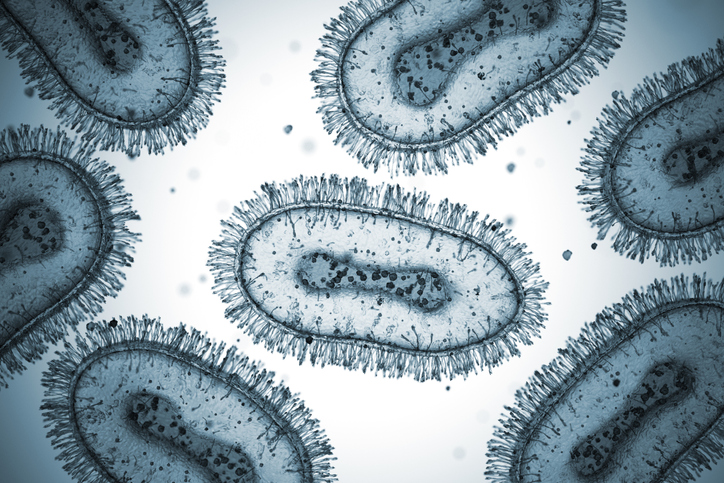Media Coverage
The work done by Northwestern University Feinberg School of Medicine faculty members (and even some students) is regularly highlighted in newspapers, online media outlets and more. Below you’ll find links to articles and videos of Feinberg in the news.
-
ABC 7 Chicago
–
Illinois COVID cases: IL reports 9,301 new cases, 54 deaths
At Northwestern Hospital, they are not seeing a post-Thanksgiving surge in COVID-19 cases, which one doctor said was a pleasant surprise. “So, right now, our ICU is very busy. A lot of the cases that we’re seeing are not necessarily driven by COVID,” said Dr. Marc Sala, Northwestern Memorial Hospital’s pulmonary critical care department. “The numbers for COVID are relatively stable in our ICU.”
-
TODAY
–
This simple at-home test may help detect subtle signs of dementia
“I think that the idea of trying to identify one’s own personal cognitive decline over time is excellent,” said Sandra Weintraub, a professor of psychiatry in the Mesulam Center for Cognitive Neurology and Alzheimer’s Disease at Northwestern University Feinberg School of Medicine.
-
The New York Times
–
In Chicago, a New Approach to Gay and Bisexual Men With Prostate Cancer
Mr. Curtin’s search for a different approach led him to Dr. Channa Amarasekera, director of the Gay and Bisexual Men’s Urology Program at Northwestern Medicine in Chicago. The program, which began taking patients only in August, is the first of its kind in the United States, and Dr. Amarasekera, who has focused his career on urologic care for gay and bisexual men and other sexual minorities, is the program’s first leader.
-
The New York Times
–
The Health Toll of Poor Sleep
A study from 2019 by researchers at Northwestern Medicine and Rice University found that grieving spouses who reported sleeping poorly had high levels of chronic, body-wide inflammation, which can increase their susceptibility to heart disease and cancer.
-
NPR Morning Edition
–
Airlines were beginning to recover from the pandemic, then Omicron showed up
Dr. Robert Murphy, professor of infectious diseases at Northwestern University’s Feinberg School of Medicine says, while the omicron variant is concerning, there’s not a lot known about it yet.
-
The New York Times
–
Cognitive Rehab: One Patient’s Painstaking Path Through Long COVID Therapy
“I can feel that things are off,” she told a neurologist at Northwestern Memorial Hospital’s Neuro Covid-19 Clinic in Chicago who evaluated her and recommended cognitive rehab. “I approach a red light, my brain knows that it’s red, but it’s not reacting to the rest of my body to put my foot on the brake. Do you understand how terrifying that is?”
-
USA Today
–
Pregnancy risks increase with age but there’s no reason to believe risks ‘jump’ after turning 35, study suggests
Prenatal services may partially affect stillbirth and infant mortality rates after birth, but the study left out key information that impacts pregnancy outcome, said Dr. Priya Rajan, associate professor of maternal fetal medicine at Northwestern University Feinberg School of Medicine and chief of diagnostic ultrasound at Northwestern Medicine.
-
Chicago Tribune
–
Glioblastomas, the aggressive brain tumors, might benefit from immunotherapy in some patients, Northwestern research suggests
As a neurosurgeon regularly treating glioblastomas, Dr. Adam Sonabend followed with interest the rise of immunotherapy, a new way to help cancer patients utilize the power of their own immune systems.
But until now, not much promise has been shown for patients with glioblastomas, an aggressive type of brain tumor that has no cure. -
US News & World Report
–
Long-Haul COVID Can Include Chronic Fatigue: Study
That concern is shared by Dr. Colin Franz, an assistant professor of physical medicine and rehabilitation and neurology at Northwestern University’s Feinberg School of Medicine in Chicago, who reviewed the findings.
While researchers try to define this problem, between 0.5% and 1% of non-hospitalized COVID patients develop at least one long-haul symptom, he said. “Given the vast number of people who had COVID worldwide, this represents millions of people,” said Franz, who is also a physician-scientist at Shirley Ryan AbilityLab.
-
NBC News (National)
–
Omicron may cause milder symptoms. But experts aren’t breathing easy yet.
Whether the variant will spread as quickly in countries with higher vaccination rates is still to be determined, said Ramon Lorenzo-Redondo, the bioinformatics director of the Center for Pathogen Genomics and Microbial Evolution at the Harvey Institute for Global Health and a research assistant professor of medicine in infectious diseases at Northwestern University’s Feinberg School of Medicine.
“It might not even establish in other countries,” Lorenzo-Redondo said. “It’s still too early to know if this variant is going to spread. Maybe other factors, like higher vaccination, will stop this.”






